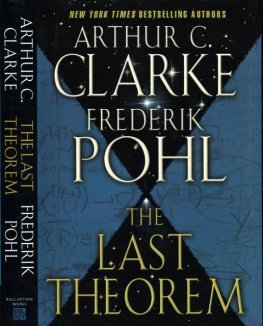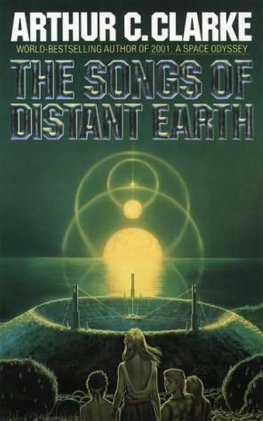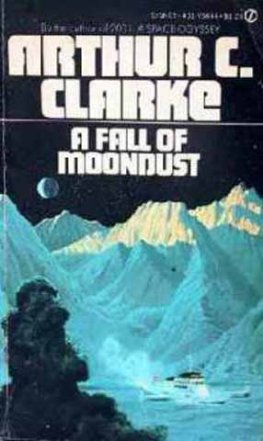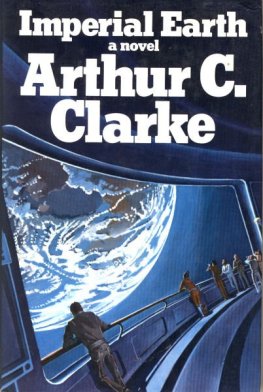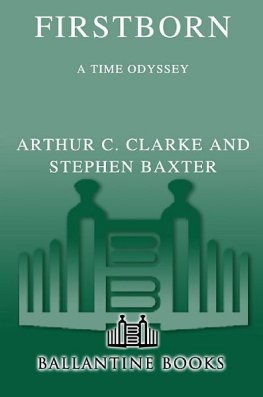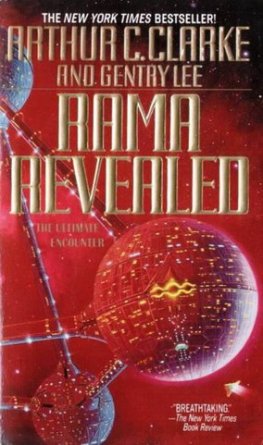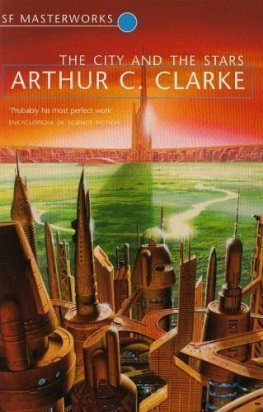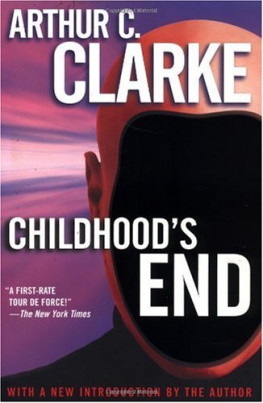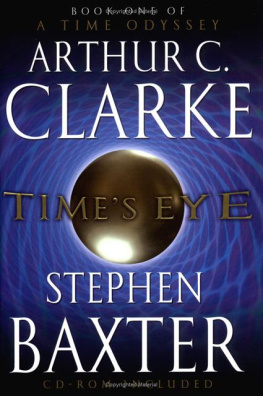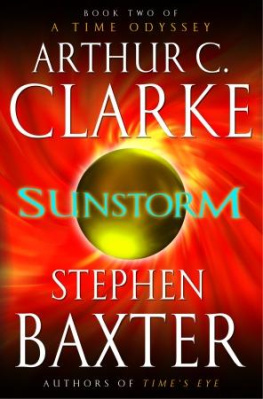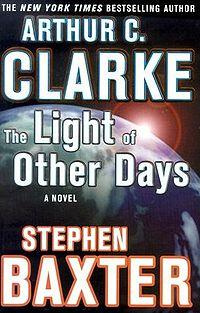The Light of Other Days
by Arthur C. Clarke & Stephen Baxter
Is it not possible I often wonder that things we have felt with great intensity have an experience independent of our minds; are in fact still in existence? And if so, will it not be possible, in time, that some device will be invented by which we can tap them? Instead of remembering here a scene and there a sound, I shall fit a plug into the wall; and listen in to the past
Virginia Woolf (1882-1941)
We know how cruel the truth often is, and we wonder whether delusion is not more consoling.
Henri Poincar (1884-1912)
Bobby could see the Earth, complete and serene, within its cage of silver light.
Fingers of green and blue pushed into the new deserts of Asia and the North American Midwest. Artificial reefs glimmered in the Caribbean, pale blue against the deeper ocean. Great wispy machines laboured over the poles to repair the atmosphere. The air was clear as glass, for now mankind drew its energy from the core of Earth itself.
And Bobby knew that if he chose, with a mere effort of will, he could look back into time.
He could watch cities bloom on Earths patient surface, to dwindle and vanish like rusty dew. He could see species shrivel and devolve like leaves curling into their buds. He could watch the slow dance of the continents as Earth gathered its primordial heat back into its iron heart. The present was a glimmering, expanding bubble of life and awareness, with the past locked within, trapped unmoving like an insect in amber.
For a long time, on this rich, growing Earth, embedded in knowledge, an enhanced humankind had been at peace: a peace unimaginable when he was born.
And all of this had derived from the ambition of one man a venal, flawed man, a man who had never even understood where his dreams would lead.
How remarkable, he thought.
Bobby looked into his past, and into his heart.
Chapter 1
The Casimir engine
A little after dawn, Vitaly Keldysh climbed stiffly into his car, engaged the SmartDrive, and let the car sweep him away from the run-down hotel.
The streets of Leninsk were empty, the road surface cracked, many windows boarded up. He remembered how this place had been at its peak, in the 1970s perhaps: a bustling science city with a population of tens of thousands, with schools, cinemas, a swimming pool, a sports stadium, cafes, restaurants and hotels, even its own TV station. Still, as he passed the main gateway to the north of the city, there was the old blue sign with its white pointing arrow: TO BAIKONUR, still proclaiming that ancient deceptive name. And still, here at the empty heart of Asia, Russian engineers built spaceships and fired them into the sky.
But, he reflected sadly, not for much longer.
The sun rose at last, and banished the stars: all but one, he saw, the brightest of all. It moved with a leisurely but unnatural speed across the southern sky. It was the ruin of the International Space Station: never completed, abandoned in 2010 after the crash of an ageing Space Shuttle. But still the Station drifted around the Earth, an unwelcome guest at a party long over.
The landscape beyond the city was barren. He passed a camel standing patiently at the side of the road, a wizened woman beside it dressed in rags. It was a scene he might have encountered any time in the last thousand years, he thought, as if all the great changes, political and technical and social, that had swept across this land had been for nothing. Which was, perhaps, the reality.
But in the gathering sunlight of this spring dawn, the steppe was green and littered with bright yellow flowers. He wound down his window and tried to detect the meadow fragrance he remembered so well; but his nose, ruined by a lifetime of tobacco, let him down. He felt a stab of sadness, as he always did at this time of year. The grass and flowers would soon be gone; the steppe spring was brief, as tragically brief as life itself.
He reached the range.
It was a place of steel towers pointing to the sky, of enormous concrete mounds. The cosmodrome far vaster than its western competitors covered thousands of square kilometres of this empty land. Much of it was abandoned now, of course, and the great gantries were rusting slowly in the dry air, or else had been pulled down for scrap with or without the consent of the authorities.
But this morning there was much activity around one pad. He could see technicians in their protective suits and orange hats scurrying around the great gantry, like faithful at the feet of some immense god.
A voice floated across the steppe from a speaker tower. Gotovnosty dyesyat minut. Ten minutes and counting.
The walk from the car to the viewing stand, short as it was, tired him greatly. He tried to ignore the hammering of his recalcitrant heart, the prickling of sweat over his neck and brow, his gasping breathlessness, the stiff pain that plagued his arm and neck.
As he took his place those already here greeted him. There were the corpulent, complacent men and women who, in this new Russia, moved seamlessly between legitimate authority and murky underworld; and there were young technicians, like all of the new generations rat-faced with the hunger that had plagued his country since the fall of the Soviet Union.
He accepted their greetings, but was happy to sink into isolated anonymity. The men and women of this hard future cared nothing for him and his memories of a better past.
And nor did they care much for what was about to happen here. All their gossip was of events far away: of Hiram Patterson and his wormholes, his promise to make the Earth itself as transparent as glass.
It was very obvious to Vitaly that he was the oldest person here. The last survivor of the old days, perhaps. That thought gave him a certain sour pleasure.
It was, in fact, almost exactly seventy years since the launch of the first Molniya lightning in 1965. It might have been seventy days, so vivid were the events in Vitalys mind, when the young army of scientists, rocket engineers, technicians, labourers, cooks, carpenters and masons had come to this unpromising steppe and living in huts and tents, alternately baking and freezing, armed with little but their dedication and Korolevs genius had built and launched mankinds first spaceships.
The design of the Molniya satellites had been utterly ingenious. Korolevs great boosters were incapable of launching a satellite to geosynchronous orbit, that high radius where the station would hover above a fixed point on Earths surface. So Korolev launched his satellites on elliptical eight-hour trajectories. With such orbits, carefully chosen, three Molniyas could provide coverage for most of the Soviet Union. For decades the U.S.S.R. and then Russia had maintained constellations of Molniyas in their eccentric orbits, providing the great, sprawling country with essential social and economic unity.
Vitaly regarded the Molniya comsats as Korolevs greatest achievement, outshining even the Designers accomplishments in launching robots and humans into space, touching Mars and Venus, even so nearly beating the Americans to the Moon.
But now, perhaps, the need for those marvellous birds was dying at last.
The great launch tower rolled back, and the last power umbilicals fell away, writhing slowly like fat black snakes. The slim form of the booster itself was revealed, a needle shape with the baroque fluting typical of Korolevs antique, marvellous, utterly reliable designs. Although the sun was now high in the sky, the rocket was bathed in brilliant artificial light, wreathed in vapour breathed by the mass of cryogenic fuels in its tanks.


